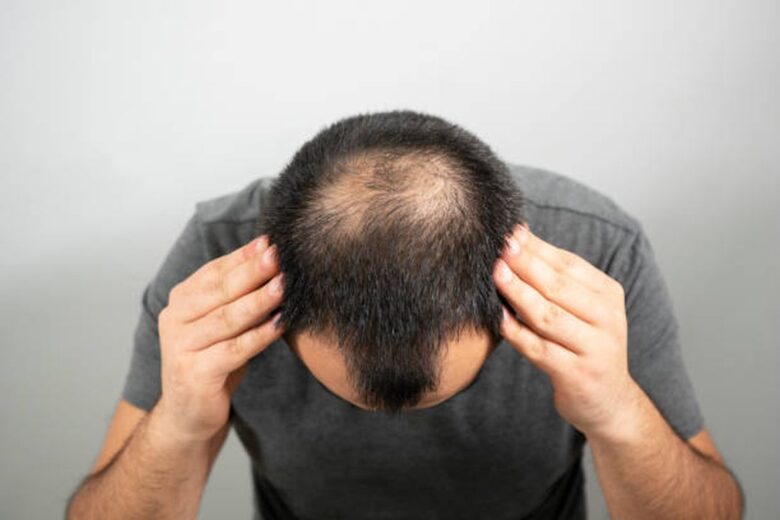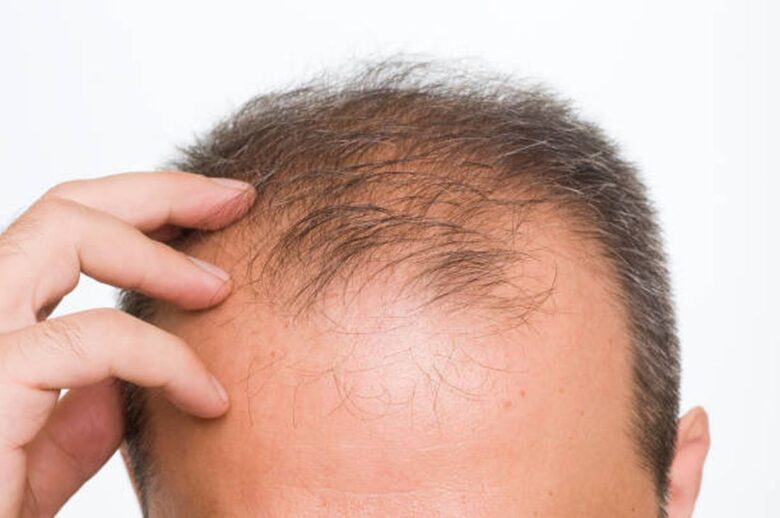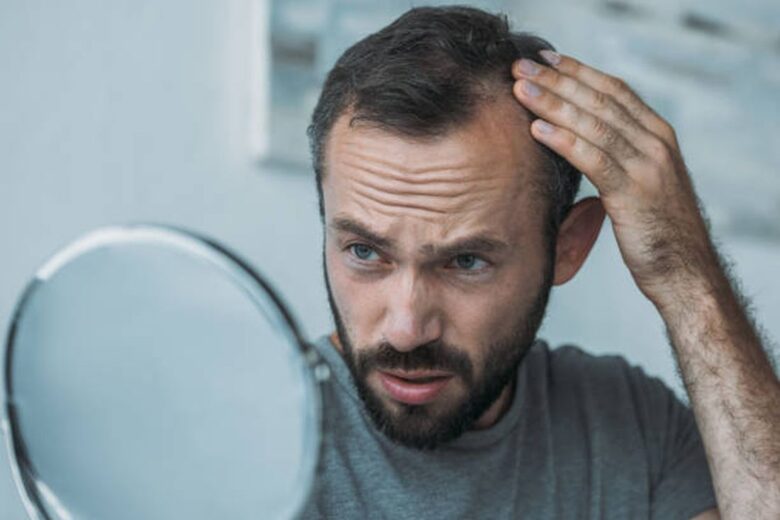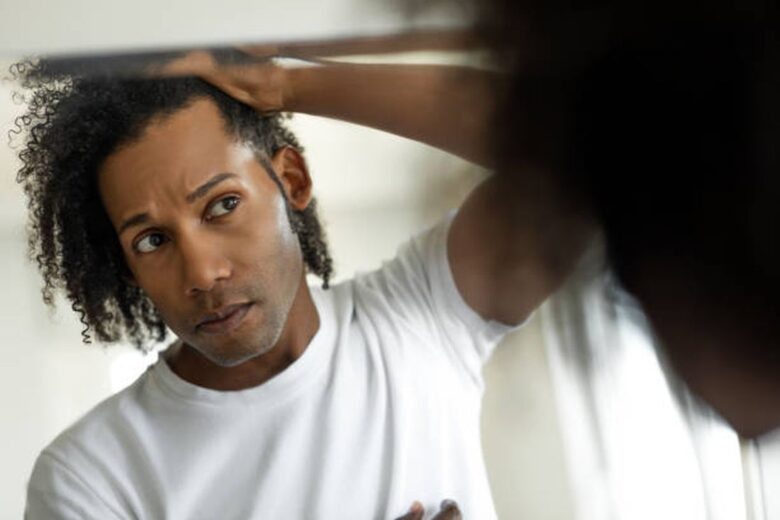
6 Reasons for Hair Loss in Young Men
Hair loss in young men can start as early as in their 20s and 30s. Men may notice hair loss symptoms such as receding hairline and the slow disappearance of hair from the crown and frontal scalp. The presence of androgenic hormones, such as testosterone and dihydrotestosterone, and heredity background, are the main causes for hair loss in young males.
Depending on your family history and age, you could see hair loss quite young in your life. However, early intervention can make a big difference. Before you take up any hair loss solutions, you should know the cause of your hair loss. Many factors influence hair loss; here are the top 6 causes for Hair Loss in young men.

Male Pattern Baldness
One of the most prevailing causes for hair loss in young males is male pattern baldness, otherwise known as its scientific name Androgenic alopecia. It can begin at any age; however, most men develop it during childhood or their early teenage years. This condition is characterised by the receding of the hairline and the development of a round or oval bald patch on the scalp.
Androgenetic alopecia in men has often been associated with several other health conditions, such as coronary heart disease and enlargement of the prostate. Furthermore, prostate cancer, diabetes, and high blood pressure (hypertension) have been related to androgenetic alopecia.
Scientists have determined that this form of hair loss is related to hormones called androgens, particularly an androgen called dihydrotestosterone. This hormone is important for normal male sexual development before birth and during puberty.
The inheritance pattern of androgenetic alopecia is disputed amongst researchers because many genetic and environmental factors are likely to be involved, such as health conditions, stress & anxiety etc. However, having a close relative with patterned hair loss appears to be a risk factor for developing the condition.

1. Stress & Anxiety
Stress & anxiety are common causes of hair loss in young males. This reason for hair loss is often not discussed, as very little is known about mental illness and how it can manifest as a physical issue. Generally, the topic of mental health is often considered taboo, so young men suffering from stress & anxiety tend to keep it to themselves. Stress & anxiety can lead to three main types of hair loss.
2. Telogen effluvium
Stress & Anxiety can push hair follicles into their “resting” phase so that they don’t produce new hair strands. Over time, hair can fall out more easily when you wash or comb them.
3. Trichotillomania
This condition often stems from an anxiety disorder, and the patient literally pulls out their hair as a coping mechanism to stress. It is more common among teenage boys and girls.
4. Alopecia areata
Alopecia areata is an autoimmune disorder. In all autoimmune disorders, your body’s own cells attack certain parts of your body, thinking it is a foreign substance. In this particular kind of autoimmune disorder, your body’s immune system attacks hair follicles. This causes your hair to fall out. Researchers are uncertain of exactly what causes this form of hair loss. Stress is an obvious reason, but genetics and other environmental factors can also play a role in its development.
The good news is that if stress & anxiety are the main factors of your hair loss, then you can get your hair back. The best solution would be to identify stressors in your life and actively avoid them where you can. Seeking professional psychological help is also strongly recommended.

Health Conditions
As mentioned previously, many health conditions are often associated with hair loss in young men. Two common health conditions that translate into hair loss include:
1. Hyper and Hypothyroidism
Hormonal imbalance can be a major cause of hair loss. Our hormones help regulate bodily functions such as growth, sleep, mood, and appetite and even have a significant role in hair growth. The thyroid is what controls our body’s ability to absorb essential nutrients like iron, calcium, etc., that are responsible for hair growth. Thus, underactive or overactive thyroid glands can lead to hair loss in young men.
2. Lupus
Lupus is another autoimmune disease that can lead to hair loss. It can cause widespread inflammation of the skin, especially the face and the scalp region. It can slowly thin out the hair on the scalp and gradually lead to baldness.
Other health conditions
As mentioned previously, many hair loss conditions such as Androgenetic alopecia present themselves with other health problems. The most common of these are prostate cancer, diabetes, and high blood pressure (hypertension). Due to the nature of all these illnesses, it is hard to specify precisely the cause of hair loss.

-
Nutritional Problems
Unlike other factors that are causes for hair loss in young males, such as genetics or environmental factors, hair loss associated with lack of nutrition can easily be compacted with a proper diet. A lack of the right nutrients, including vitamins A, C, D and E, zinc, B vitamins, iron, biotin, protein and essential fatty acids, may slow down hair growth or even cause hair loss. These nutrients can easily be a part of your diet, as long as you consume foods from all the groups, such as nuts, light and dark meat, eggs and vegetables.
-
Side Effects of Medications
Some medications can have negative side effects that lead to hair loss. Many different types of drugs are thought to cause hair loss, including Acne medications containing vitamin A (retinoids), Antibiotics and antifungal drugs, Antidepressants etc.
Before you begin any type of medication, it is important that you review any potential side effects with your doctor or pharmacist. In case your hair loss does occur from a drug you’re taking, there is a good chance that the hair will grow back after you stop taking the medication.
-
Damage to the Scalp
Many illnesses, infections and medical conditions can damage or scar the scalp. This makes it harder for new hair follicles to grow and replace the old ones. Over time, a damaged scalp can turn into a bald one. Your scalp can get damaged by a number of medication and hair loss treatments as well. Many hair fall treatment shampoos and ointments can lead to a damaged scalp. Dryness and dandruff can also lead to scarring.

How to treat hair loss
Hair fall treatment ranges from medication to prevention and nutrition. If your hair loss is genetic, your options may be limited. However, if your hair loss is brought about by health conditions, environmental factors or nutritional deficiencies, then you can look into hair loss treatments.
Medical hair fall treatments have come very a long way and tend to vary depending on your cause for hair loss. If your hair loss is caused by an underlying health condition or as a side effect of a medication, your best bet is to treat the health condition and find an alternative to your medications. In case of hair loss brings about anxiety or stress, you should refer to a mental health professional.
IQ doctor brings its customer a number of hair loss treatments to choose from. These medications can easily be ordered from our website. You can also get a free consultation from our physicians online. You can then get a hair loss treatment plan personalised for you.




